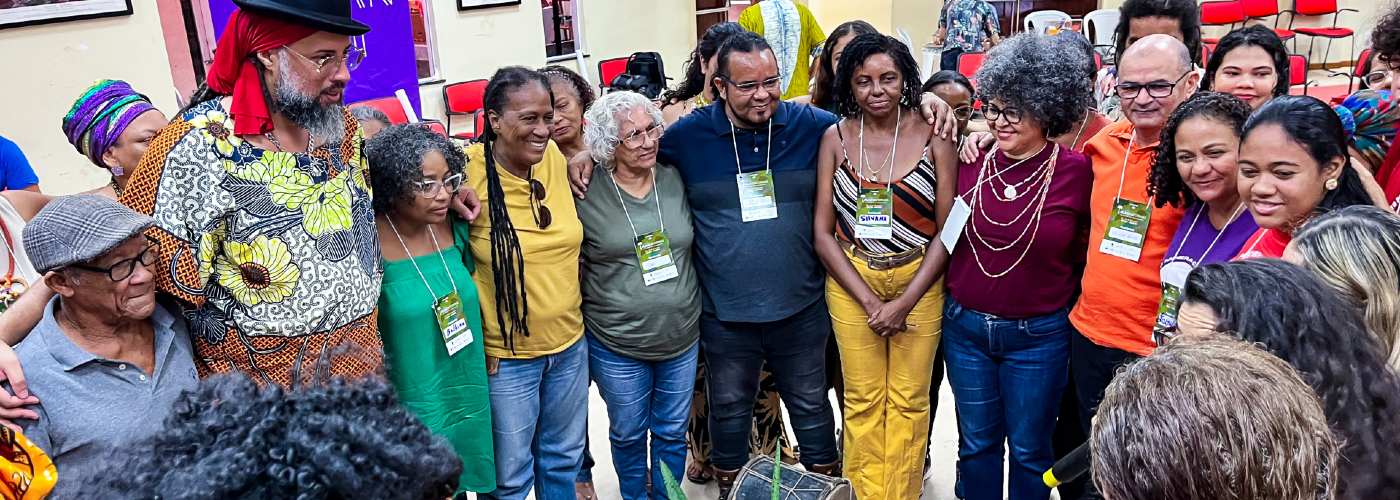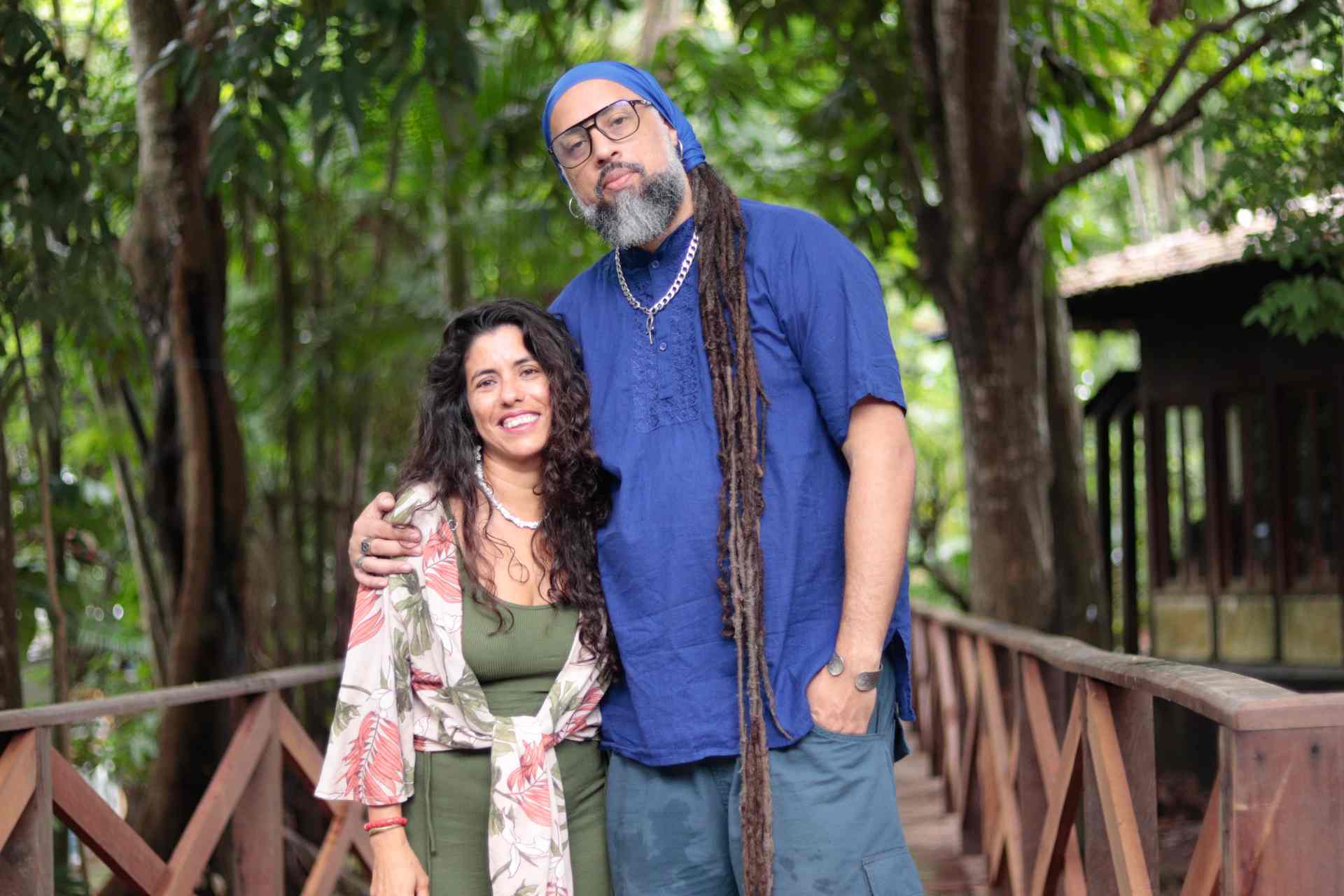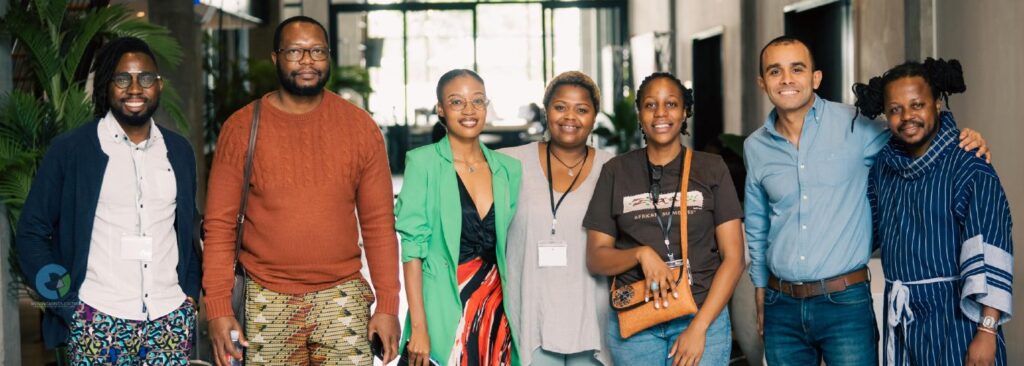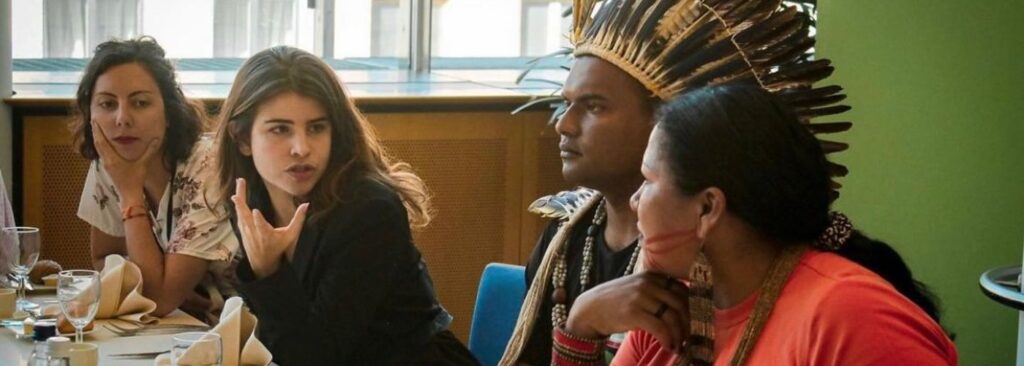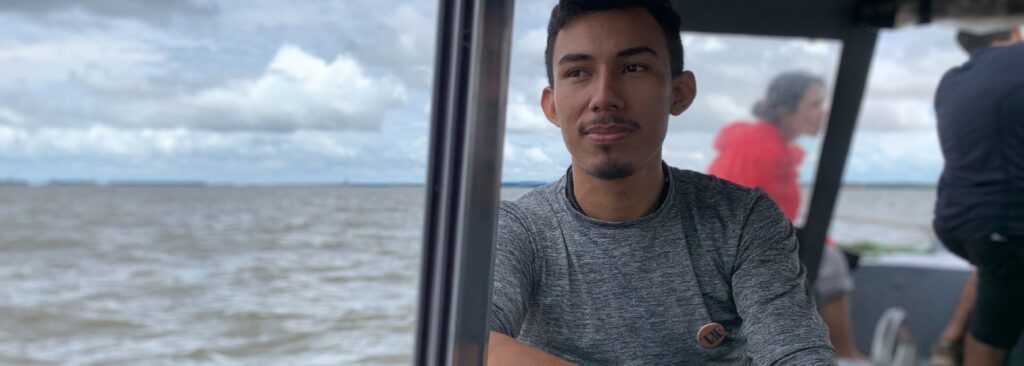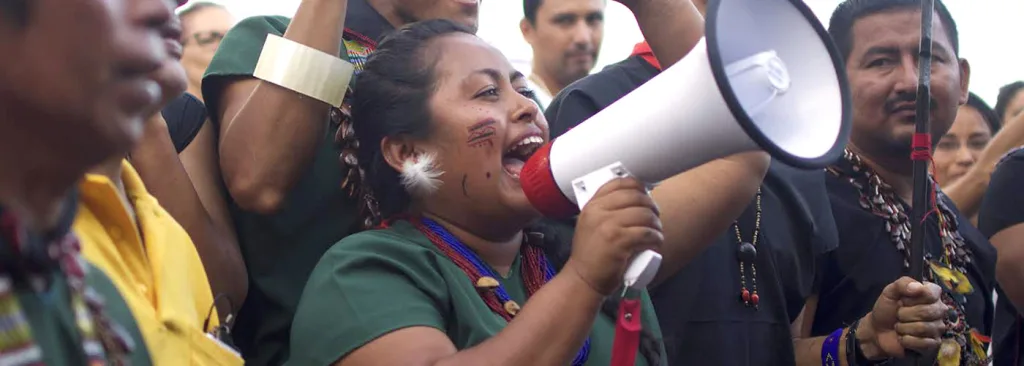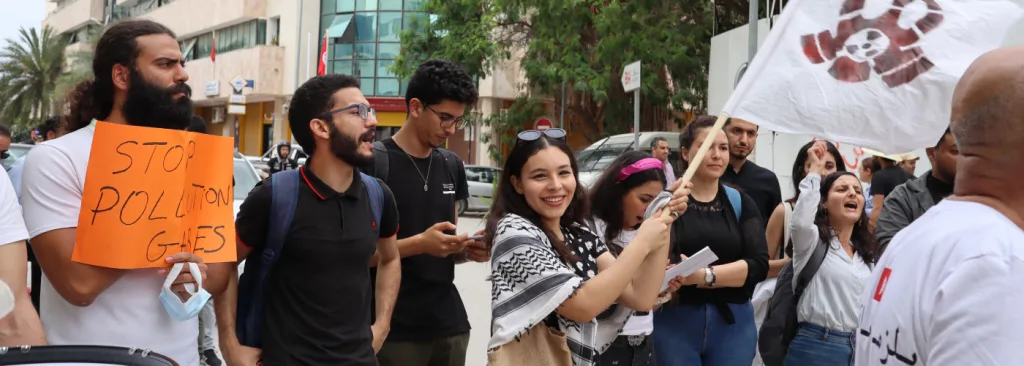Casa Preta literally means “black house” in Portuguese. It is a cultural center in Belém of Pará, the capital city of Pará state in the north of Brazil. People come to the center to learn about Brazil’s African culture. Casa Preta plants African baobab trees, makes African drums and gives music lessons at schools.
Paula Moreira, Hivos’ climate justice program manager in Brazil, tells us a bit about the center. “We go to Casa Preta to remember where we come from. The food we eat, the dances we dance, the music we make, they all have African roots.” In 1888, Brazil was the last country in the Western Hemisphere to abolish slavery after having enslaved an estimated five million Africans.
Climate justice
Casa Preta also organizes campaigns against racism. Some of these are about climate justice, and this is where Hivos’ support comes in. Paula: “Black and brown people suffer disproportionately from the consequences of climate change. For example, when we have heavy rainfall and flooding, the slums suffer the most. The water washes away the houses where mostly Black people live. This is because Black people have less access to education and good jobs; they are marginalized and live in the most vulnerable communities.”
Sayonara Malta, a project advisor at Casa Preta, chimes in: “Climate justice cannot be separated from human rights, which should be the basis for all discussions about the climate.”
Casa Preta focuses on uniting the climate justice agenda of Afro-Brazilians and Brazilian Indigenous communities. Paula explains why. “Both were enslaved by the colonizers, and now, both suffer greatly from the consequences of climate change.” Indigenous peoples are seeing their territories in the Amazon rainforest destroyed by things they did not cause: the changing climate, deforestation and mining.
Sayonara’s mother comes from a lineage of healers, medicine women and midwives. “While traditional communities have been protectors of forests and waters since their origins, we see a group of countries and companies now destroying the planet through a system of death and destruction that has its roots in exploitative colonial ideas,” she says.
Citizen participation
Hivos supported Casa Preta in setting up Plantaformas, a digital platform for citizen participation similar to Facebook. People can come together and discuss climate issues and policies. It uses Decidim software (Catalan for ‘we decide’) that was first used by the Barcelona City Council to let Barcelona’s residents propose ideas on how to spend the city budget. Hivos helped roll out the platform to Black and Indigenous communities across Brazil and in the Amazon.
“Local communities have a lot of ancestral knowledge and ways of dealing with climate change,” says Sayonara. “The tool makes it possible to collect this knowledge and people’s experiences and use them for climate policies and solutions.” In addition to the digital platform, Hivos funds in person visits to communities. “Trainers visit communities throughout the Amazon,” says Paula. “They give courses on how climate policy works in Brazil and how communities can influence it.”
First success
The technology behind Plantaformas that Casa Preta introduced was adopted by the Brazilian government a year later. After discussions with Casa Preta, the Brazilian Minister of Technology decided the government would using the citizen participation tool to shape Brazil’s national climate plan. Paula is confident: “We can say that the national climate plan of Brazil will probably be much more inclusive because of the platform that Casa Preta introduced in the country with our support.”

